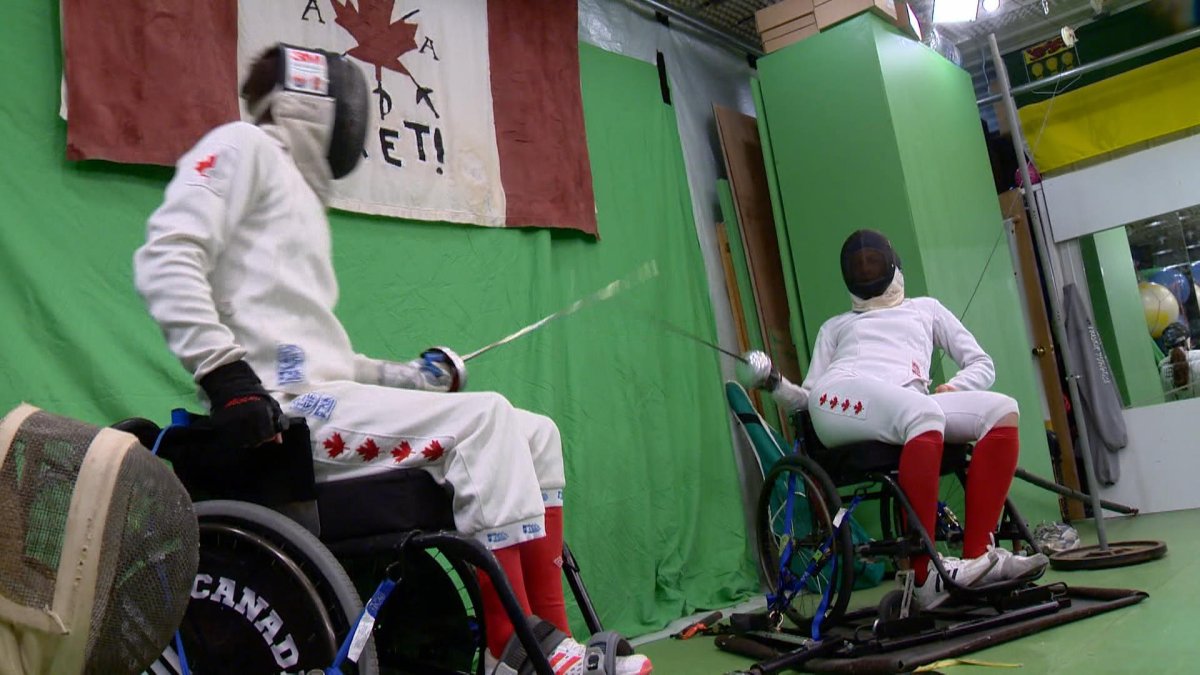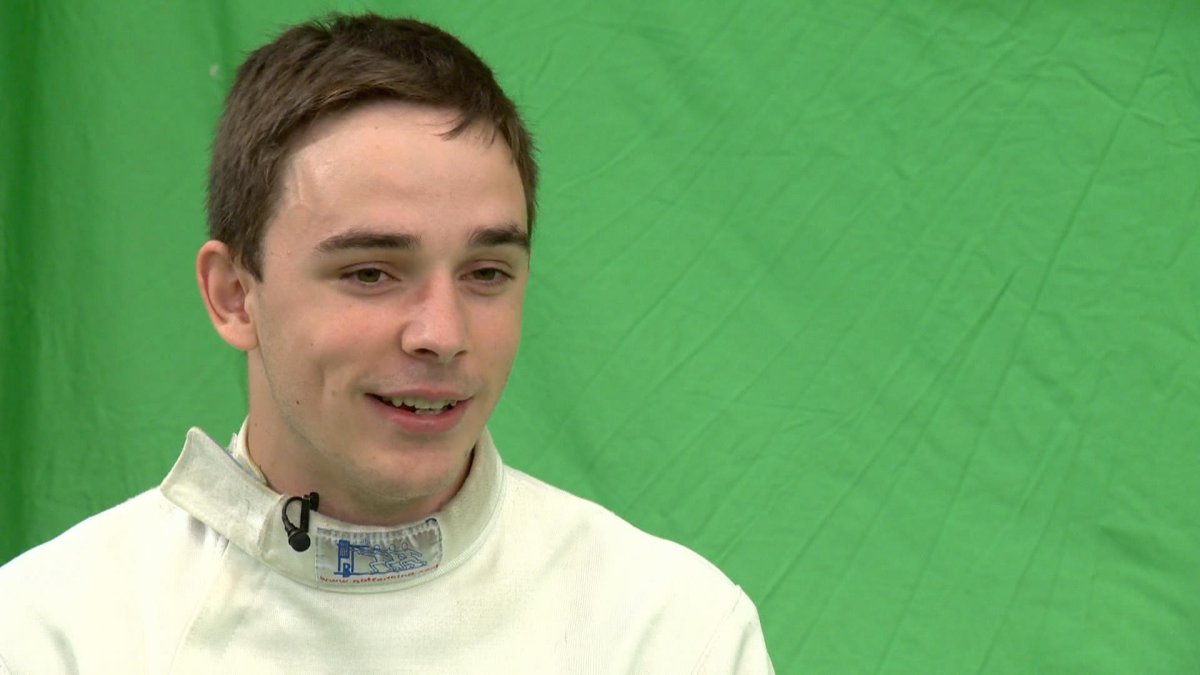A farm boy from Asquith, Sask., is gearing up for a Paralympic journey in Japan set to get underway later this month.

Ryan Rousell, 24, is one of four wheelchair fencers selected to represent Canada this summer at the Paralympic Games in Tokyo.
“It hasn’t really hit me yet. To be honest, I’m more focused on getting there, making sure I don’t get … COVID on the way there and just kind of settle in. I think it’ll hit me once I probably get there,” he said.
“If you asked me that question five years ago now, I wouldn’t have thought I’d be here.
“To be not just representing Canada, but also representing my entire province as a whole and being a very select few to do that is quite surreal.”
Rousell lives with cerebral palsy which affects his motor skills on his right side. He started fencing at age seven and trained for more than a decade with able-bodied teammates.
“I enjoy not just the physical aspect of it because hitting people with swords is hilariously fun, but the mental capacity required to do it as well,” he said.
“You need to be able to almost play chess or rock paper scissor (with the opponent) … The ability to not just use your physical strength, but your mental strength as well. It is a very engaging sport.”
Team manager Lynn Seguin said she was pleased with the speedy progress of Rousell, who is the youngest member of the national wheelchair fencing squad by more than 20 years.
“It took a little bit of convincing for him to understand that he could have much more success, greater success in para fencing. And so he decided to try it and then went away to a few World Cups, Seguin said.
“Para fencing is extremely fast, it’s much faster than what fencing is if you manage to see it at the Olympics. It’s pretty fast there, para fencing is even faster.

Get breaking National news
“These athletes are anchored down in their wheelchairs specific to wheelchair fencing. So there’s no moving of people. You just sit in your chair and you go.”
Rousell became one of the first Canadians to capture gold at a World Cup competition, which he achieved in 2018 by winning the men’s sabre A category in Montreal.
More recently, the COVID-19 pandemic has challenged Rousell to revise his training habits.
“Our original goal was to build up for the Paralympics and when the pandemic hit, basically, we cut off training cold turkey,” he said.
“Now, that they’ve been rescheduled … it very much changed the dynamic of how my training went and if anything, it made me train smarter, train harder but smarter, obviously, looking to different kinds of and better kinds of nutrition because we have a shorter time period to reach that peak.
“My training was a lot more dynamic and basically taking it where I could get it and waiting for things to open … it was very much a shock to go from full-on training all the time to nothing and then trying to start that back up again from scratch.”
Before heading to his first Paralympic Games, Rousell has already set goals for himself.
“I’m trying to go in with as open a mind as possible. I don’t want to set my sights too high, but I don’t want to leave the possibility of doing very well,” he said.
“I’m closed off, if that makes any sense. I don’t want to give myself thoughts of grandeur, but I want to go in and do the best that I possibly can for myself and for everyone else around.”
His family owns a farm by the town of Asquith, which is approximately 35 km west of Saskatoon.
“Given my sleep schedule now, I wouldn’t say the farm boy in me is still alive and well, in that respect, but it does give you an edge on what’s expected of you,” Rousell said.
“You’re used to that, having to do the work and do it right and work hard to get stuff done, and once you’re used to that, honestly, training is easy.”

With the Paralympic games just days away, Sequin said they’re using what others learned at the recent Olympics to prepare.
“Feeling very excited … lots of meetings and getting out emails to athletes, making sure that they understand what to expect and why they are expecting it,” Seguin said.
“They can expect a long wait at the airport when we arrive.
“Canada has been very good from what we’ve heard from the Olympic committee and that there have been no cases there. They’ve followed the rules. They have been very good leaders in all the protocols that have been in place. But like Canadians do, they’ve been having a good time and enjoying themselves too.”
The postponed Tokyo 2020 Paralympic Games will take place Aug. 24 to Sept. 5, 2021, in Japan.









Comments